My Annual Super Bowl Prediction (Based on Biblical and Other Sources)
This year featuring Taylor Swift lyrics, racist chants and deicide. What's not to like? And not to brag, but I'm usually spot on!
We take a break from a world in perpetual turmoil to enjoy one day, one game. In the midst of our nation’s greatest crisis and our democracy’s most supreme challenge since the Civil War, laughing, cheering, and eating is how we cope - for one day - so we can get right back to the task at hand as soon as the game is over. This strategy has worked for Jews through many centuries of unbearable persecution - we call it Purim1 - a day to set all the fear and pain aside (it falls two months from now and I’m just hoping we get there). That’s what Super Sunday has become for all Americans this year. Plus, there will be puppies!
So now, down to business…
It should be mentioned up front that I do not endorse excessive gambling, and that past performance is not indicative of future results. That said, my Super Bowl predictions are almost always right.
…Except for two years ago, when I picked Philadelphia over Kansas City.
…Or maybe, I was so prescient that my prediction in 2023 was actually meant for 2025! I was right, just two years early. My crystal ball was farsighted. Right winner, wrong game.
Yeah. That’s the ticket. So here we go, with a slightly adapted Eagle-Chief prediction for 2025.
Before we begin, keep in mind one other factoid:
When Jews read a portion from the Torah on a given Shabbat morning, that portion is also read, in part, on the prior Saturday afternoon and Monday and Thursday morning.2 So, the “portion of the week” that is read on a Shabbat is technically the portion of the entire week prior, including Sunday.
The portion of the week for Super Bowl Sunday is therefore Yitro (Jethro), which includes the giving of the Torah at Mount Sinai, arguably the greatest event in world history, aside from Malcom Butler’s interception in Super Bowl 49, which occurred ten years ago this week.
So, here’s the thing. The Torah portion is Yitro - and BOTH TEAMS, THE EAGLES AND CHIEFS, ARE MENTIONED IN IT.
If you were to do a prop bet on any two NFL teams’ names being mentioned in the same portion, the odds would be next to impossible. Maybe the Rams and Patriarchs (sic) for Vayera (which features the binding of Isaac). There are some portions that mention lots of animals, and in particular birds of prey, but this isn’t one of them.
In case you’re wondering, no Commanders here (though there are lots of commandments, ten in particular) and no Bills shaped like buffalos, no Lions, no Ravens, and no Rams in this portion. But there are Chiefs and there are Eagles.
So let’s get going.
Here is the case for Philly:
In the Bible, the eagle is referenced over 20 times. In most cases, this majestic bird is seen as a warrior, swooping down on its prey (see Deuteronomy 28:49, Job 9:26 and Jeremiah 48:40, for a few examples). The eagle is also seen as unclean and detestable (Leviticus 11:13), maternal and protective (Deuteronomy 32:11 and, most famously, and in next week's portion, Exodus 19:4), youthful (Psalms 103:5), bald (Micah 1:16) and mysterious (Proverbs 30:19).
The Talmud emphasizes the eagle’s speed and agility, and its spread wings have come to symbolize arms outstretched in prayer. The Hebrew word for eagle is “Nesher,” which has also been an honorary title for a great person. Maimonides was called “ha-Nesher Hagadol,” the “Great Eagle.”
And for the Chiefs:
There are lots of words for "chief" in Jewish sources, all of them more politically correct than the Kansas City team's name (and don’t get me started on the “Tomahawk Chop3”) . The most common are "Rosh" (head) and "Sar," (chief officer).
In this week's Torah portion, Yitro, two verses are most revealing:
Ex. 19:4: "You have seen what I did to the Egyptians, how I bore you on eagles’ wings and brought you to Me."
Ex. 18:21, also in this week's portion, says this: "You shall also seek out from among all the people capable men who fear God, trustworthy men who spurn ill-gotten gain. Set these over them as chiefs of thousands, hundreds, fifties, and tens, and let them judge the people at all times. Have them bring every major dispute to you, but let them decide every minor dispute themselves. Make it easier for yourself by letting them share the burden with you."
Both of these verses are central to the narrative. One speaks of Moses' need to delegate leadership, a recommendation made by his father-in-law Jethro. The other leads up to the climactic moment when the Ten Commandments were to be given at Mt. Sinai.
What are these verses trying to tell us?
For one thing, the “chief” passage indicates that the Israelites were a talented and deep group, deep enough to recruit thousands of qualified judges. And indeed KC has a seemingly unlimited supply of talent and depth. The commentator Ibn Ezra does the math.4
The "chief" passage also seems to be indicating that K.C., like Moses, will do better if they share the burden - and the football. If Mahomes hands off to his running backs more often than expected and, when he throws, spreads the ball around to all his receivers, he'll thrive.
For Philly, the message is clearly, "Fly, Eagles, Fly." Take to the air, early and often.
For both teams, the strategies being suggested by the Torah are counterintuitive. The Chiefs like to pass first and the Eagles, with the all-everything runner Saquon Barkley, and their patented “Tush Push,” are known to be an excellent running team, who would presumably want to shorten the game with long, plodding drives.
“Tush,” incidentally, comes from the Hebrew word “tachat,” which means “under. From that you get the Yiddishized “tuchis,” shortened to “tush.” Face it, it’s a funny word. Everything in Yiddish sounds funny.
And since we’re in the anatomical neighborhood, and given the state of Washington these day, you’re probably wondering what the Hebrew for “ass kisser” is. It’s מנשק תחת - “menashek tachat” - literally, the one who kisses tuchises. But if you take that little tail out of the last Hebrew letter of the word for “kiss” (the kuf) you get a resh, which gives us the word “nesher,” - “eagle.” I kid you not. The Eagles are the masters of all things tush! 5
So, Chiefs gotta run and Birds gotta fly - and fly really high, as we’ll see below. I don't necessarily agree, but that's what I'm seeing in the text.
Oh, and the clincher might just be this commentary on the eagle verse, from Rashi, a commentary that makes reference to both teams.
There you have it. The courageous eagle, willing to make the supreme sacrifice to protect its young, able to fend off arrows to reach its destination. And God looks on and says, "That's how I felt when I rescued the Children of Israel from Egypt."
The eagle - and God - must have an impenetrable offensive line to fend off all those blitzing attackers. And as the commentator Sforno suggests, it has incredible vertical leap - it can fly really high.6 Just what the Eagles will need to propel the quarterback’s tush into the end zone, which Josh Allen was unable to do for the Bills (though it was a first down).
The medieval philosopher Bahya considered the high-flying eagle to be the equivalent of the lion, the king of beasts, in the sky, with two Hebrew letters (shin and resh) of its name referencing its fiery spirit.7
The eagle is a role model...but the chieftains in chapter 18 are too - "capable, trustworthy, spurning ill-gotten gains." Ramban elaborates on their propensity for honesty - he’s clearly never seen a Mahomes flop draw a roughing the passer call. And have the Chiefs ever told the refs, “No. The Bills really did get a first down on that QB sneak.” 8
Rashi suggests there that "capable" means wealthy (but NOT oligarchs), so they can't be bribed. All well and good, but perhaps the Chiefs’ embarrassment of riches, especially at quarterback, will not serve them well on this field of battle. It should be said, though, that both teams have won Super Bowls in the recent past.
It should also be mentioned that just as with the chieftains in our portion, arrows mentioned in our sources have, of course, nothing to do with Native American stereotypes. Sometimes an arrow is just an arrow.
And sometimes it is not.
Among the many arrowheads archaeologists have unearthed in Israel, the one pictured above might be the most historically and emotionally significant. It was found in a Jerusalem home in the upper city, just across from the ancient temple. An aristocratic Jewish family lived there at the time of the Roman destruction in the year 70 CE. It's known as the Burnt House 9 because it was destroyed at the same time the temple was burning. This spear was found just beyond the reach of a skeletal hand - the hand of a woman who might have reaching for a weapon that would allow her to defend herself. But all was lost. The Romans, whose symbol was the eagle, vanquished the Jewish people using those weapons of choice, spears and arrows. Without protection under God's wing, the woman who reached for that spear was unable to fend off those arrows - and protect her loved ones.
Eagles can be divine messengers of courage and resilience or symbols of an evil empire. We've seen both throughout history. Ben Franklin had no great love for the eagle (he preferred the turkey as our national symbol), calling it "a bird of bad moral character” that “does not get his living honestly” because it steals food from the fishing hawk and is “too lazy to fish for himself.”
One other factoid - and this one’s the kicker. Literally. Only one team in this game has a kicker who has made public comments that were called “casual, but dangerous antisemitism” by the National Catholic Reporter. 10 Here’s a transcript of his infamous speech, which essentially accuses Jews of deicide. Note that when given the chance to soften his remarks, he doubled down and said he had nothing to apologize for.
On the other hand…the Chiefs have Taylor Swift on their side. However, she grew up an hour from Philly, evidently was an Eagles fan, and this lyric is in one of her songs:
I see me padding across your wooden floors
With my Eagles T-shirt hanging from the door
“Eagles” as in the team - or the band? Either way, for Taylor and her beau, “There's gonna be a heartache tonight” if the Chiefs lose.
So let’s say she roots for the Kansas City. Only God (and perhaps Bradley Cooper) could balance Taylor out. And God is embedded in that eagle’s wing that promises to protect Israel and carry them home.
I've seen enough. 11 The Eagles will fly to victory by a field goal, kicked by the other kicker, the one who doesn’t think I killed God, the one with two Jewish first names, Jake Elliott.
Or the winning score will come in overtime in the most Jewish way possible - with a tush push.
And maybe then we can exchange that annoying Tomahawk Chop for some good old fashioned, all-American, Philly street riots.
All too often, Jewish communities have faced catastrophe. (See the packet from the Hartman Institute, Purim as a Model for Survival in a Dangerous World) Occasionally, miraculous interventions have enabled them to avert certain doom. Based on the Talmudic idea of saying blessings at places of small salvations, the custom arose for communities to celebrate anniversaries of Purim-like events. These became known as "Special Purims." The list below, which is just a partial list, comes from the online (but century-old) Jewish Encyclopedia. Take your pick.... and as you do, think of all the Purims that could not be celebrated - and the Purims yet-to-come. Our destiny seems to ride on the luck of the draw. How will the Purim of Tehran come out? The Purim of Gaza and the hope for a “Day After”? The Purim of Musk? Will we prevail, triumph or merely survive? We just keep on drawing those lots...
Purim of Abraham Danzig (called also Pulverpurim="Powder Purim"):
Purim of Ancona:
Purim of Angora:
Purim Borghel:
Purim di Buda.
Purim of Cairo:
Purim of Candia:
Purim of Chios (called also Purim de la Señora = "of the Good Lady"):
Purim de los Christianos (called also Purim de las Bombas):
Purim Edom (called also Purim al-Naāra):
Purim of Florence:
Purim di Fuoco.
Purim Fürhang (Curtain Purim):
Purim of Gumeldjina (popularly called Purim de los Ladrones = "Purim of Bandits"):
Purim of Jonathan b. Jacob of Fulda:
Purim of Lepanto:
Purim of Narbonne:
Purim of Padua:
Purim Povidl (Plum-Jam Purim):
Purim of Rhodes:
Purim of Saragossa:
Purim Sherif:
Purim of Shiraz (called also Purim of Mo'ed Ḳaṭan):
Purim of Tammuz at Algiers:
Purim of Tiberias:
Purim of Tripoli:
Purim of Widdin:
Purim Winz (called also Purim Frankfurt):
Purim of Yom-Ṭob Lipmann Heller:
Here’s a list of the weekly portions, in order, with commentary by Rabbi Shefa Gold.
OK, you chose to get me started on it. Really, don’t get me started on team names and logos that insult Native Americans - or any group. Then there’s the Tomahawk Chop, which Native American groups consider racist. And the Chief fans also drone endlessly a chant made-up by college marching bands to mimic indigenous peoples' war cries. (The Philly fans just rampage through the city all night, hanging from light poles). The closest historical source for the tomahawk chop chant is the cartoon, “Pow Wow the Indian Boy,” which I am ashamed to have enjoyed during my childhood. It was a regular feature on the children’s show Captain Kangaroo. I recall singing along to it as a kid, while cupping my hands to my mouth.
Let's for a moment picture how my peeps would respond if the moccasin were on the other foot. Imagine a team called the Shylocks, with payis and a yarmulke on their horned helmets (think Minnesota's Viking horns - since some people mistakenly believe that Jews have horns).
Every time the team scores a touchdown, the fans toss pennies in the air and make an exaggerated shofar sound (mocking the sounding of a shofar has really been done at antisemitic rallies - see the photo) while rubbing their chins like a rabbi in contemplation. We would call the ADL pretty quickly, I think.
A Chiefs vs Commanders (Formerly Redskins) Super Bowl nearly happened, and it would have been an all-time grudge match between the painfully awokened and the permanently unwakable. And standing on the sidelines would be the Native American community, just looking for a little respect.
Ibn Ezra calculated that there were 79,000. judges, based on the census in Numbers showing over 600,000 males Israelites. Here is his commentary on the verse (chiefs here is translated as “ruler.”)
Bahya’s commentary on, Genesis 2:19:2
A similar consideration prompted Adam to name the eagle “Nesher” (נשר), as he recognized that the eagle amongst the birds was what the lion is amongst the mammals on earth. The eagle’s ability to fly higher than any other bird makes it the king amongst the birds. We have a tradition that when an eagle completes his tenth year he flies so high that he approaches the planet which is the source of fire. Due to the excessive heat in that region he dives into the sea having already lost his feathers. Subsequently the eagle renews itself as before. This process repeats itself once every ten years until the hundredth year. At that point, the eagle flies even closer to the source of the fire and as a result drops into the sea and dies. This is what Saadia Gaon wrote (in connection with Psalms 103 5). At any rate, Adam, who was aware of the nature of that bird, named it נשר, the letter ש representing the word אש, “fire,” the letter ר symbolizing רוח, “Holy Spirit, and the letter נ symbolizing נפילה, the fact that it “falls” into the sea. The eagle’s name in Hebrew therefore alludes to its role in history and its eventual demise; this is also what Adam is reported as having said (according to the Midrash we quoted) לזה נאה לקרותו נשר, “this creature would appropriately be called נשר.”
It was a Buffalo first down. And here’s Ramban’s commentary:
MEN OF ‘CHAYIL.’ This means men who are capable of leading a great multitude of people. Every assembly and gathering is called chayil, and it does not apply only to soldiers going forth to war. Thus it is said [of the dry bones that Ezekiel resurrected], a great ‘chayil’ (host). Of the locusts it is said, My great ‘chayil’ (army). Of wealth it is stated, My power and the might of my hand hath gotten this ‘chayil’ (wealth); they carry upon the shoulders of young asses ‘chayaleihem’ (their riches). Of fruits it is said, the fig-tree and the vine do yield ‘cheilam’ (their strength). Thus an ish chayil in the administration of justice is one who is wise, alert, and fair; in war, an ish chayil is one who is strong, alert, and who knows the art of arraying forces in battle. A woman also is an eisheth chayil (a woman of valor) when she is alert and knows how to conduct the management of a home.
Jethro thus spoke in general and in particular. [In general], he told Moses to select people with powers of leadership in the administration of justice for this great people. In particular, they should be such as fear G-d, men of truth, hating unjust gain, for it is impossible for them to be “men of chayil” in judgment, without these qualities. It was not necessary for him to mention that they must be wise and understanding, for it is clear that these qualities are included in the term “men of chayil.” Further on, when it says, And Moses chose men of ‘chayil,’ everything is already included — i.e., that they were G-d-fearing, men who hated unjust gain, wise and understanding. Moreover, Scripture says [that Moses chose them] out of all Israel, which means [that they were] the preferred of all Israel, being the ones who have all of these qualities. Since Scripture states that he chose them out of all Israel, it is already stating that they were chosen in preference to all, for it is known that the better ones in Israel possess all good qualities. Jethro, however, not being familiar with them, found it necessary to explain in detail [that they be G-d-fearing, men of truth, etc.]
Some scholars explain anshei chayil as men of physical strength and zeal, such as have ability to stand in the king’s palace. Similarly, eisheth chayil is a woman of strength and industry in the work of the home, as Scripture explains there in that section. Likewise, Make them wander to and fro ‘b’cheilcha,’ which means “by Thy power.” Also, Neither doth it, [i.e., the horse], afford escape by its great ‘cheilo,’ [which means “by its great strength”]. The word [chayil] is associated with the Aramaic, as is evidenced by the [Hebrew] expression, ‘yesh l’eil yadi’ (It is in the power of my hand), which is rendered in the Targum: “there is cheila in my hand.” And further on it says, And Moses chose men of ‘chayil’ out of all Israel, which means the preferred ones of the entire nation and all qualities are included, as I have explained.
From the Catholic Reporter piece:
In Butker's Catholic America, priests rule their parish, men rule their homes, and women should reject "the most diabolical lies" that they might find fulfillment and meaning in any work apart from being a wife and mother.
And — in a somewhat surprising passing comment — Catholics should proclaim that the Jews killed Jesus.
Despite all the media furor about Butker, most commentators did not engage this disturbing part of his speech. It was just one line, Butker made almost casually: "Congress just passed a bill where stating something as basic as the biblical teaching of who killed Jesus could land you in jail," he said. We are left to guess the "who," but Butker's meaning is clear: he believes that a "real" American Catholic should say that Jews killed Jesus.
Butker's brief reference to the antisemitic charge of "deicide" (i.e. "God-murder") demands not only engagement, but response. The deicide charge is a dangerous Christian belief that has been used to persecute Jews for centuries and led to the murder of six million Jews in the Holocaust. As Butker is putting his vision of what an "unapologetic" American Catholic should believe about the world, I offer two points.
First, Congress passed no such law, and as an American, Butker's first amendment rights remain fully intact to make this biblical interpretation and to speak about it. Butker is most likely referring to the Antisemitism Awareness Act, a bill that passed only the U.S. House of Representatives and would adopt a specific definition of antisemitism from the International Holocaust Remembrance Alliance.
The bill would apply that definition to the Department of Education's efforts to restrict federal funding to colleges and universities that fail to address antisemitism on their campuses. The bill stands virtually no chance of passing in the Senate, and it says nothing about incarcerating anybody for asserting their free speech right to place blame for Jesus's death on whomever they wish.
Second, the Roman Catholic Church has issued a definitive, and clear rejection of Butker's "basic belief" about who is responsible for Jesus' death. If Butker wishes to be in alignment with church teachings, he needs to refute the toxic anti-Jewish theology he is holding, and not use his platforms to spread this pernicious lie.
Let me be perfectly clear on this point: The Catholic Church definitively rejected the deicide charge at the Second Vatican Council in 1965. For Butker's reference, in the groundbreaking document Nostra Aetate, the Catholic Church clearly states:
"...what happened in [Jesus Christ's] passion cannot be charged against all the Jews, without distinction, then alive, nor against the Jews of today. Although the Church is the new people of God, the Jews should not be presented as rejected or accursed by God, as if this followed from the Holy Scriptures. All should see to it, then, that in catechetical work or in the preaching of the word of God they do not teach anything that does not conform to the truth of the Gospel and the spirit of Christ."
This teaching of the Catholic Church is definitive and authoritative, meaning it's not optional to believe or not, according to one's whims or ideological stances. Butker positions himself as a radical truth-teller who has been given a platform to share his Catholic beliefs. On the deicide charge, Butker is clearly getting his toxic theology from somewhere other than the Catholic Church.
Sometimes I fall back on the number of Jews on each team as a tiebreaker. But, if you don’t count the Philly owner, there are none - at least no players - on either team, according to this running list of Jews in sports.

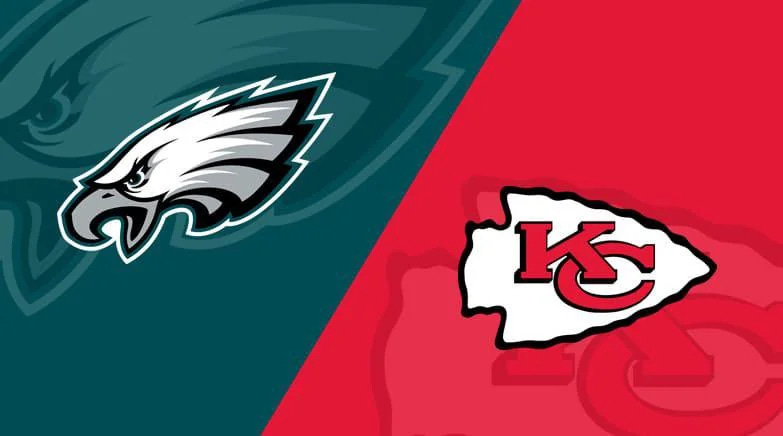
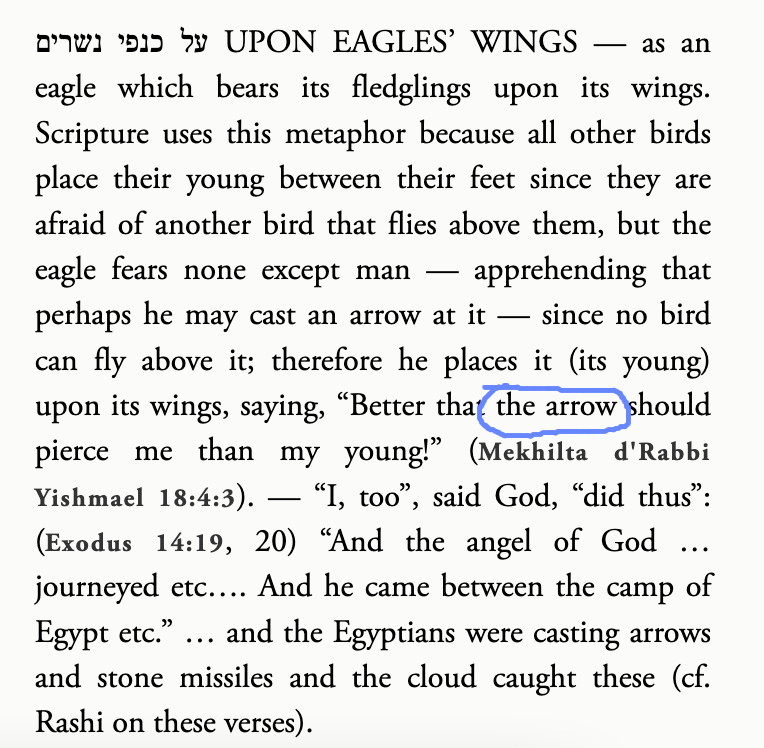


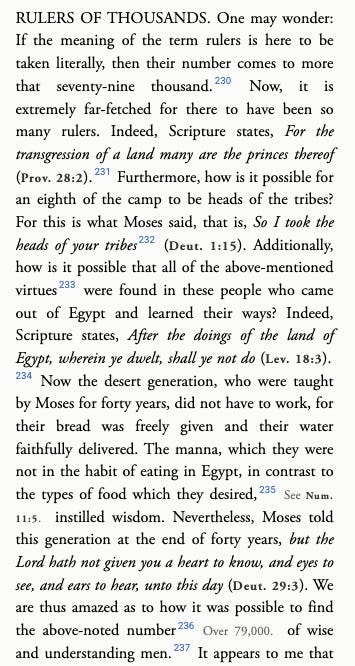
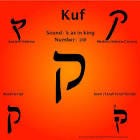

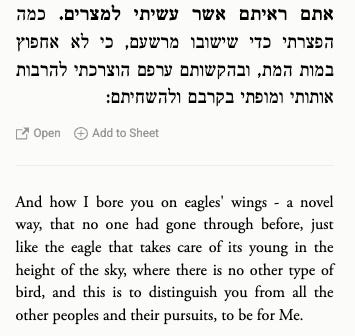
No comments:
Post a Comment